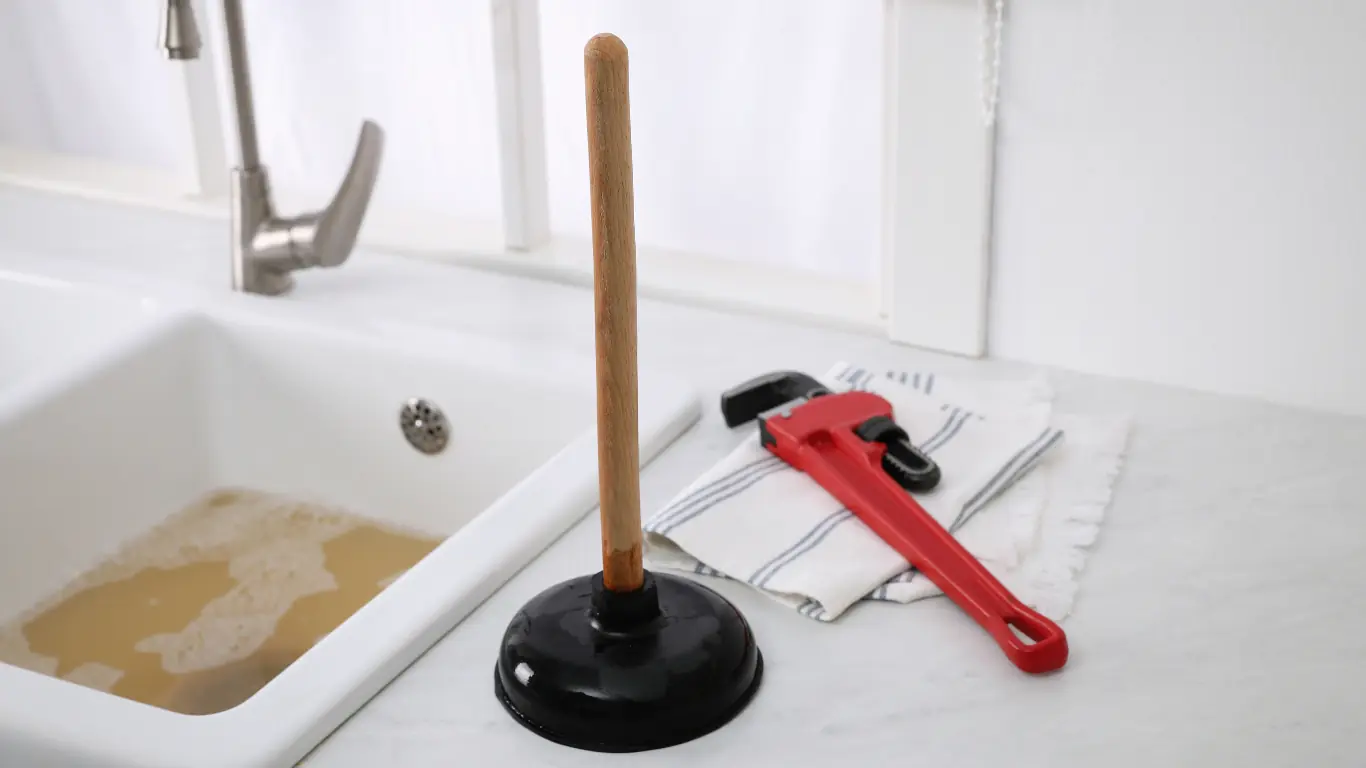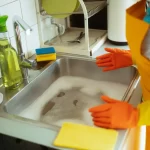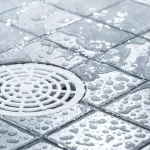Water leaks can often catch homeowners by surprise, starting as minor annoyances but quickly escalating into serious issues. Understanding the causes of water leaks is crucial for preventing both inconvenience and financial losses. By identifying and addressing these issues early, you can avoid costly repairs and protect your home. In this blog post, we’ll explore the common causes of water leaks and provide practical tips and strategies to safeguard your property from unwanted moisture.
Aging infrastructure
One of the most common causes of water leaks is the gradual deterioration of pipes and plumbing systems. Over time pipes can become corroded, rusted or simply wear out, especially in homes with older plumbing systems. This is often due to the materials used in older plumbing. Such as galvanized steel or iron, which are prone to corrosion and rust over the years.
As these pipes degrade, they can develop small leaks that may go unnoticed until significant damage has occurred. In some cases, this can lead to major water damage and costly repairs. To prevent future water leaks, it’s essential to conduct regular inspections by a professional plumber. These evaluations help identify potential issues early on, allowing you to address them before they escalate into major problems.
Preventive Measures: Regular maintenance is key to extending the life of your plumbing system. Consider replacing old pipes with modern materials such as PEX or copper, which are more resistant to corrosion. Additionally, water treatment systems can help reduce the corrosiveness of your water, further protecting your pipes.
High water pressure
Excessive water pressure might seem like a good thing—after all, who doesn’t enjoy a strong shower? However, high water pressure can be a hidden threat to your home’s plumbing system. It puts undue stress on your pipes, fixtures, and appliances, increasing the likelihood of leaks or even causing pipes to burst.
High water pressure can lead to a range of problems, including dripping faucets, running toilets, and leaks in your water heater. Over time, this can significantly shorten the lifespan of your plumbing system and appliances, leading to costly repairs or replacements.
Diagnosing High Water Pressure: It’s important to have your water pressure checked by a professional plumber, especially if you notice signs of leaks, hear unusual noises from your pipes, or if your water-using appliances seem to be malfunctioning. The optimal water pressure for most homes is between 40-60 psi (pounds per square inch). If your water pressure exceeds this range, you may need a pressure regulator to reduce the pressure to a safe level.
Preventive Measures: Installing a pressure regulator is an effective way to protect your plumbing system. This device helps maintain consistent water pressure, preventing the kind of stress that can lead to leaks and other plumbing issues. Additionally, regular maintenance and inspections can help catch issues related to high water pressure before they cause significant damage.
Clogged lines

Clogs are not merely a minor inconvenience; they can escalate into significant plumbing problems, including leaks. When drains become blocked, the pressure within the plumbing system can increase dramatically. This added pressure may cause pipes to leak or, in severe cases, burst. Regular drain cleaning is essential to prevent blockages and the potential damage they can cause. Being mindful of what you dispose of down the sink—such as grease, food particles, and other debris—can help maintain clear and functional drains.
- Importance of Running Traps: An often overlooked but critical component of your plumbing system is the running trap. These traps are installed in drainage lines to maintain a water seal, which prevents sewer gasses from entering the home. If these traps become clogged or are improperly maintained, they can contribute to pressure buildup in the system or even result in direct leaks. Ensuring that running traps are clear and functioning properly is vital for preventing water leaks related to clogged drains.
Temperature fluctuations
Temperature fluctuations, especially extreme ones, can have a significant impact on your plumbing system. When temperatures drop, the water inside pipes can freeze, causing the pipes to expand. Conversely, when temperatures rise, the ice melts, causing the pipes to contract. This repeated expansion and contraction can weaken the pipe material over time, leading to cracks and eventual leaks. This issue is particularly common in regions with harsh winter climates, like Toronto.
Preventive Measures: To protect your plumbing from the effects of temperature fluctuations, consider insulating your pipes, especially those in unheated areas like basements, attics, or exterior walls. This insulation helps maintain a stable temperature around the pipes, reducing the risk of freezing and subsequent damage. Additionally, during extremely cold weather, allowing a trickle of water to flow through faucets can help prevent pipes from freezing.
Faulty appliances and fixtures
Home appliances such as washing machines, dishwashers, and water heaters are frequent culprits when it comes to water leaks. Over time, these appliances can experience wear and tear, making them prone to leaks. For instance, hoses can crack, seals can degrade, and connections can become loose. To prevent the inconvenience and potential damage caused by water leaks, it’s crucial to engage in regular maintenance and promptly replace any deteriorating parts.
Tackling Minor Leaks: Similarly, issues with dripping faucets or leaking showerheads should not be ignored. While these might seem like minor inconveniences, they can be indicative of more significant underlying problems. Addressing these leaks promptly can prevent more severe issues and save water, reducing your utility bills.
Preventive Maintenance Tips: Regularly inspect and maintain your appliances and fixtures. Check hoses and connections for signs of wear, and replace them as needed. For water heaters, flushing the tank periodically can help prevent sediment buildup, which can lead to leaks and reduced efficiency.
Damaged pipe joints
Within your home’s plumbing system, the pipe joints—where pipes connect—are some of the most vulnerable points. These joints can deteriorate over time, becoming weak or loose, which often results in leaks. This wear and tear can be due to age, water pressure, or improper installation. It’s important to be vigilant for any unusual sounds, such as banging, clanking, or whistling, emanating from your plumbing. These noises can indicate problems at the pipe joints, suggesting that they may be close to failing.
Preventive Measures: Regular inspections by a professional plumber can help identify and address issues with pipe joints before they lead to more serious problems. If you suspect a problem due to unusual sounds or visible signs of moisture around joints, it’s best to consult with a qualified plumber promptly.
Tree root intrusion
While trees add beauty and value to your property, their roots can pose a significant threat to your plumbing system, particularly the sewer lines. As trees grow, their roots naturally seek out water sources, which can lead them to penetrate sewer pipes. This intrusion can cause blockages, cracks, and even complete pipe collapses over time, resulting in leaks and costly repairs.
Preventive Measures: To minimize the risk of tree root intrusion, it’s important to plant trees at a safe distance from your home’s sewer lines. If you already have mature trees near your plumbing system, consider having a professional plumber conduct regular inspections and, if necessary, root clearing services. In some cases, installing root barriers can also help protect your pipes from root damage.
Poor workmanship
Poor workmanship during the installation or repair of plumbing systems is a common cause of water leaks. This can include the use of substandard materials, improper sealing of pipe joints, or failure to adhere to building codes. Such shortcuts can lead to leaks, reduced efficiency, and even damage to other parts of your home.
Ensuring Quality Work: To avoid these issues, it’s crucial to hire qualified and experienced plumbers for all plumbing work. Ensure that your plumber is licensed and has a good reputation for quality workmanship. Not only does this help prevent future leaks, but it also ensures that all work complies with local building codes and regulations, safeguarding your home from potential liabilities.
Conclusion
Preventing water leaking often boils down to regular maintenance and being proactive about potential risks. Scheduling annual inspections with a trusted plumber, being mindful of what goes down your drains, and paying attention to signs of wear and tear can save you from the hassles and expenses of water damage.






